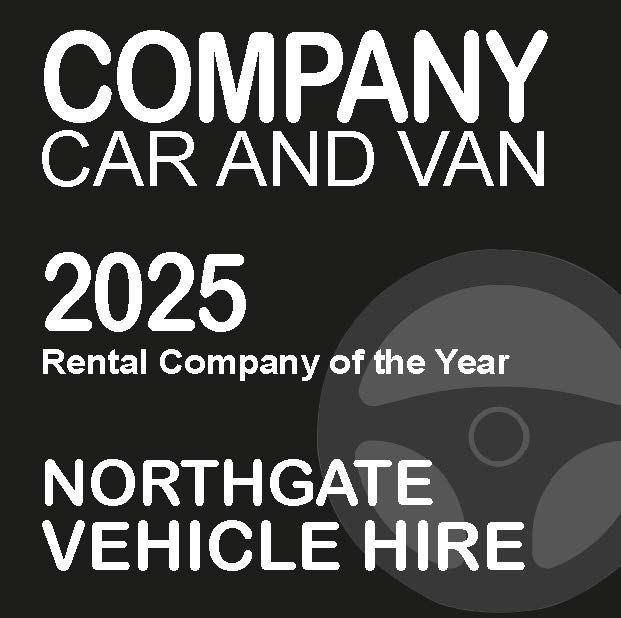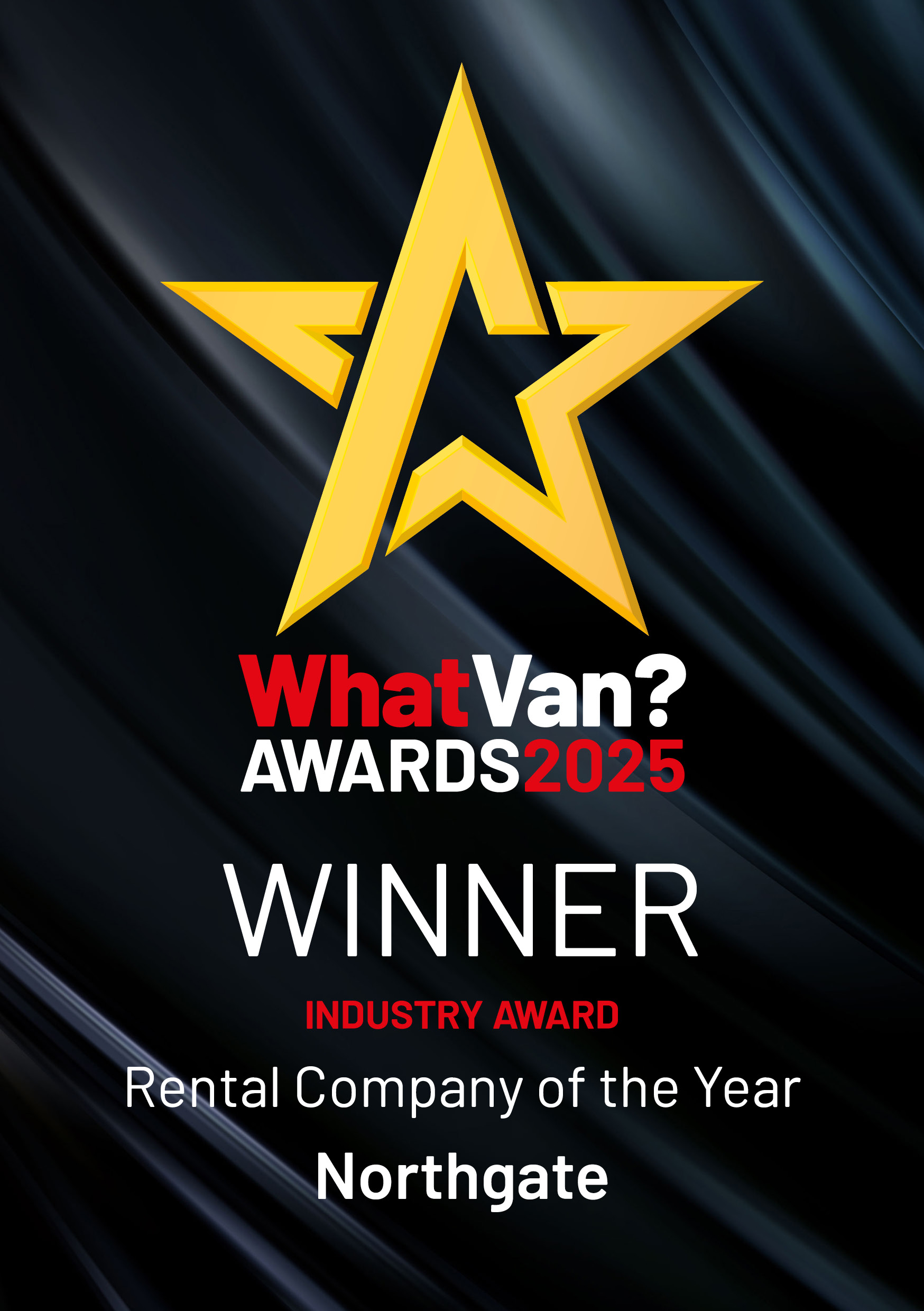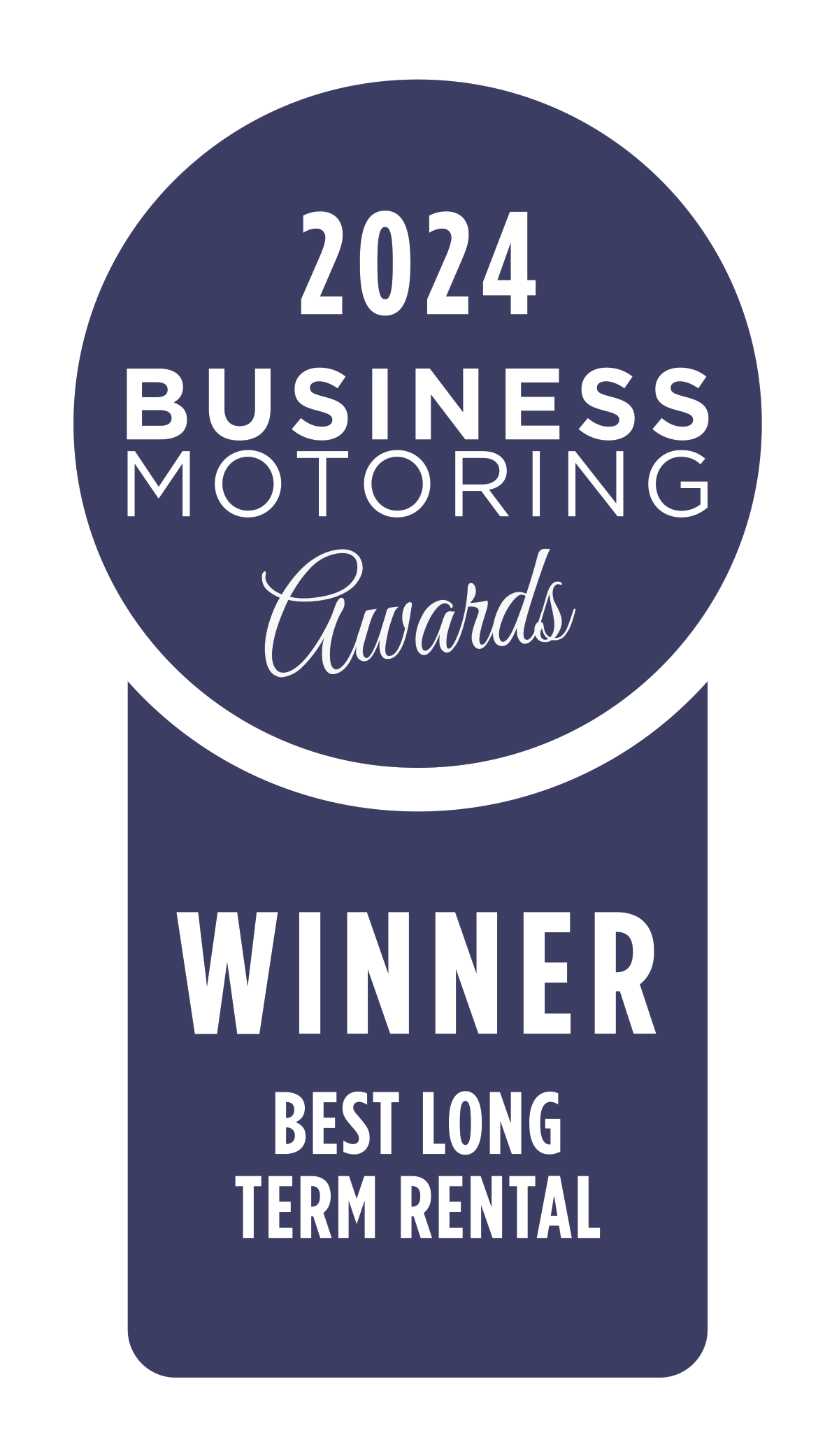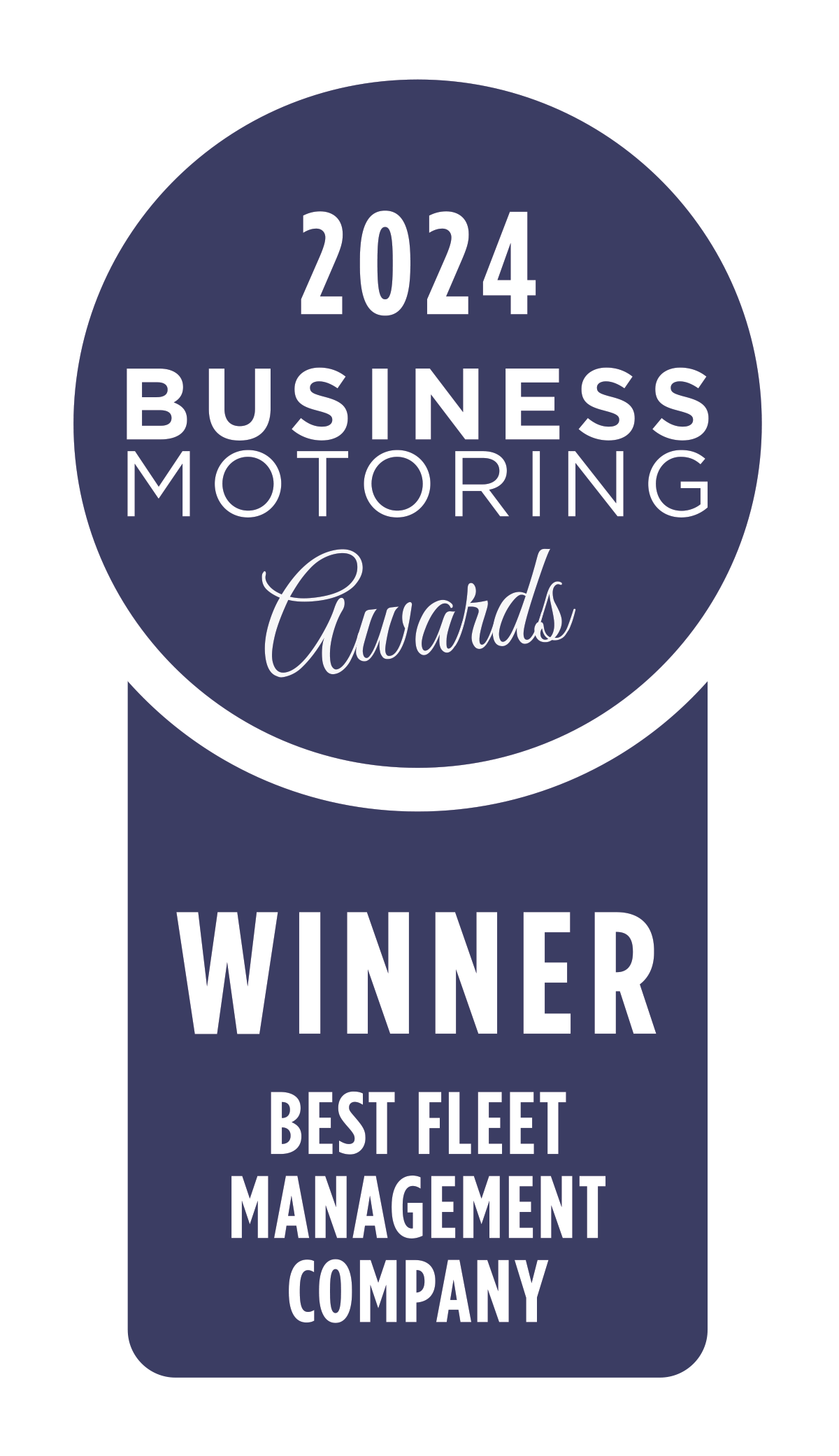Regional ULEZ, CAZ & ZEZ Expansion Dates and UK Requirements
![]() 05/06/2024
05/06/2024![]() 8 minutes read
8 minutes read
“29% of businesses were found to be unaware of the planned CAZ charges”. This was the headline finding of the research we commissioned through IFF. That’s more than 1 in 4 fleets who are not aware of a regulation which poses a significant operational and financial challenge to using commercial vehicles.
Clean Air Zones (CAZ), as well as London’s Ultra Low Emission Zone (ULEZ), are pivotal initiatives in the UK's efforts to combat air pollution. Understanding their intricacies is key for businesses to ensure their fleet meets the CAZ and ULEZ requirements, as well as minimise environmental impact.
What This ULEZ and CAZ Guide Contains
This guide offers a detailed overview of CAZ and ULEZ, covering CAZ classifications and daily charges, their implications for businesses as well as how Northgate can provide greener solutions to help your business.
What are CAZ (Clean Air Zones)?
In 2015, the UK government published plans to reduce air pollution, with Clean Air Zones (CAZs) having a huge emphasis on these plans. London already had a ULEZ, however this was typically more bespoke. By comparison, CAZs follow a consistent structure, broken down into four classes.
A CAZ is a dedicated region within a city where a local authority has issued emission measures to improve the air quality.
With the regular updates to ULEZ & CAZ expansions, it can be confusing to know if your fleet is still compliant.
Charging vs. Non-Charging Clean Air Zones
There are currently two types of Clean Air Zones: non-charging and charging.
Non-charging CAZs are a soft approach to encourage behaviour that lowers air pollution without imposing fines on vehicles entering the zone.
Charging CAZs requires drivers to pay a fee to enter the area if their vehicle fails to meet the required environmental standards (based on Euro emissions standards) for that zone.
Clean Air Zone Classifications
There are four classes which Clean Air Zones can fall under and these affect different types of vehicles. Local authorities decide on which level of restriction is applied to the CAZ. Only buses, coaches, taxis and private hire vehicles are eligible for charges in all CAZs.
The four CAZ classes are:
| Class | Buses | Coaches | Taxis | Private Hire Vehicles (PHVs) | Heavy Goods Vehicles (HGVs) | Light Goods Vehicles (LGVs) | Cars |
|---|---|---|---|---|---|---|---|
| Class A | Yes | Yes | Yes | Yes | No | No | No |
| Class B | Yes | Yes | Yes | Yes | Yes | No | No |
| Class C | Yes | Yes | Yes | Yes | Yes | Yes | No |
| Class D | Yes | Yes | Yes | Yes | Yes | Yes | Yes |
What is the CAZ Minimum Standard for Vehicles?
Any city or area with a CAZ will have the same compliance standards due to the CAZ structure. In the table below, you can see the CAZ minimum standard for typical vehicles:
| Vehicle Type | CAZ Minimum Standard | Eligible for Charges |
|---|---|---|
| Motorcycles | Euro 3 | Class D (optional) |
| Mopeds | Euro 3 | Class D (optional) |
| Vans | Euro 4 (petrol engine) or Euro 6 (diesel engine) | Class C, Class D |
| Minibuses | Euro 4 (petrol engine) or Euro 6 (diesel engine) | Class C, Class D |
| Taxis | Euro 4 (petrol engine) or Euro 6 (diesel engine) | All Classes |
| Private Hire Vehicles (PHVs) | Euro 4 (petrol engine) or Euro 6 (diesel engine) | All Classes |
| Cars | Euro 4 (petrol engine) or Euro 6 (diesel engine) | Class D |
| Buses | Euro V1 | All Classes |
| Coaches | Euro V1 | All Classes |
| Heavy Goods Vehicles (HGVs) | Euro V1 | Class B, Class C, Class D |
UK Cities with Clean Air Zones
Which UK City is Next to Receive a CAZ?
ULEZ areas have been enforced in Dundee as of May 2024, with Edinburgh, Glasgow and Aberdeen in the pipeline for June 2024. Scottish ULEZs differ from England's, banning 30+ year old petrol and diesel vehicles from entering these zones. Failure to meet these restrictions will result in a £60 fine.
Cities with Live Clean Air Zones
As of 2024, seven cities are currently running Clean Air Zones. The first of these was Bath in March 2021. The full list can be found below:
| UK City | Date of Launch | Daily Charge |
|---|---|---|
| Bath | 15 March 2021 | Class C - taxis, PHVs, minibuses, LGVs (£9), buses, coaches HGVs (£100) |
| Birmingham | 1 June 2021 | Class D - Cars, LGVs, taxis, PHVs (£8), buses, coaches, HGVs (£50) |
| Bradford | 26 September 2022 | Class C - LGVs, minibuses (£9), HGVs, buses, coaches (£50) |
| Bristol | 28 November 2022 | Class D - Older cars, LGVs (£9), HGVs, buses, coaches (£100) |
| Newcastle & Gateshead (Tyneside) | 30 January 2023 | Class C - Taxis, LGVs, PHVs (£12,50), buses, coaches, HGVs (£50) |
| Portsmouth | 29 November 2021 | Class B - Non-compliant taxis, PHVs (£12.50), buses, coaches, HGVs (£50) |
| Sheffield & Rotherham | 27 February 2023 | Class C - Taxis, LGVs, buses, coaches, HGVs |
Cities with Zero Emissions Zones
Zero Emissions Zones (ZEZ) charge all petrol and diesel vehicles which enter the city centre between 7am-7pm.
Currently, the only city with a ZEZ is Oxford. The charge varies from £2 to £10 depending on the vehicle’s emission levels. The daily charge for the ZEZ area is due to double from August 2025.
Hybrid vehicles are included within the ZEZ charge upon entering the city. Zero-emission vehicles such as electric vehicles are able to enter the city centre free of charge.
| UK City | Date of Launch | Daily Charge |
|---|---|---|
| Oxford | 28 February 2022 | Ultra-low emission vehicles (ULEV) - £2, Low emission vehicles (LEV) - £4, All other vehicles - £10 |
Towns or Cities With Clean Air Zone Discussions
A number of UK towns and cities have been told to reduce air pollution and emissions. Below is the current list of locations where CAZs are being considered, under construction or opposed.
| UK City | Details |
|---|---|
| Basildon | CAZ has been opposed. |
| Cambridge | CAZ is under consideration. It has not been decided which class Cambridge's CAZ would fall under. |
| Canterbury | CAZ is not expected. |
| Coventry | CAZ has been opposed. |
| Derby | CAZ has been opposed. |
| Exeter | CAZ has been opposed. |
| Leeds | CAZ is no longer required. The council found that 90% of buses and 80% of HGVs used cleaner VI engines. |
| Liverpool | CAZ is under consideration. Liverpool's Mayor has suggested a blanket ban on diesel vehicles entering the city. |
| Nottingham | CAZ is no longer required. Investigation into tackling air pollution without a CAZ has shown a potential reduction in air pollution within the next two years. |
| Southampton | Non-charging CAZ in action. Vehicle charges were decided against with other measures being explored instead. |
| Sefton | CAZ is under consideration. Buses, taxis and HGVs are likely to be targeted. |
| St Albans | CAZ is under construction. |
| Warrington | CAZ is under construction. |
| Wokingham | Low Emission Zone is under construction. The council have highlighted areas of Wokingham where emissions levels need to be reduced, with a LEZ being discussed. |
Cities with Scrapped Clean Air Zones
So far two cities have scrapped their CAZs for very different reasons. Leicester saw a major improvement in air quality, showing that Clean Air Zones can work.
| UK City | Reason for Scrapping |
|---|---|
| Leicester | Major improvements were made in air quality. |
| Manchester | Political and public backlash and resistance. A new Clean Air Plan is being proposed to the UK government. |
What is ULEZ?
From 8 April 2019, Ultra Low Emission Zones (ULEZ) replaced the Emissions Surcharge (T-Charge) in London. This decision was made in the hope that ULEZ will help reduce air pollution caused by vehicles.
Ultra Low Emission Zones (ULEZ) are effectively Clean Air Zones that cover the London area, operating 24/7 (with few exceptions such as Christmas Day on 25 December).
ULEZ introduces additional charges on top of the weekday Congestion Charge, nearly doubling the daily cost.
As of 29 August 2023, the ULEZ expansion began, now covering all London boroughs.
The Impact of ULEZ on London Businesses
To encourage drivers to seek out less polluting vehicles and travel alternatives, the government is including financial charges in their regulations. As such, a regulation like ULEZ is creating financial challenges for businesses of all sizes that make use of commercial vehicles.
Whether travel in these zones is regularly required, the result of a client trip or off-site training, the impact on UK business is widespread. If it’s not something that directly affects your business now, it is something to start thinking about.
Reducing air pollution is more than a localised effort in London. With each new EU directive to reduce harmful pollutants from vehicle exhausts, the emission standards for vehicles are getting stricter across Europe. There is an international movement to get highly polluting vehicles off our roads.
What Are the Biggest Challenges for UK Businesses with ULEZ?
The biggest challenge is keeping pace with the regulatory changes and stricter emissions standards. For example, even vehicles that were LEZ compliant before may not be ULEZ compliant. And the financial charges are such that many businesses cannot afford to ignore them.
Businesses are now having to work quickly and find smart ways to prepare for the future, to avoid the incoming financial charges that seem to be growing costlier with each new regulation.
Here are the challenges to businesses looking to make financially savvy decisions to avoid or mitigate the impact of ULEZ (and the other possible regulations to follow):
- Businesses using LCVs or HGVs within the ULEZ zone will be subject to additional charges.
- Euro 6 diesel vans were made available from September 2015. Many of the vans on the road today will not be compliant.
- The retail value of existing non-compliant vehicles is reducing on an ongoing basis, so the comparative investment of replacing them with ULEZ-exempt vehicles is rising.
- Many fleets are still unaware of regulations like CAZ. Finding out too late could mean not enough time to prepare for the financial charges being put in place.
Does My Vehicle Meet ULEZ Standards?
You can check if their vehicle meets the ULEZ emissions standards by visiting the TFL website and entering in your vehicle’s number plate.
What Can We Learn From London’s ULEZ?
We should be looking at London’s ULEZ as a model for what will happen elsewhere in the UK. Councils governing the UK’s major cities are faced with decisions on how to introduce regulations on reducing air pollution. ULEZ will surely have an influence on the decisions of these councils and future regulations.
Complying with ULEZ Emissions Standards
In order to comply with London's ULEZ emissions standards, petrol vans must be a Euro 4 standard - if your petrol van was manufactured after 2006, this should be compliant. For the majority of vans however, these tend to run on diesel or a diesel hybrid - for diesel vans, ensure the emissions rating is at least Euro 6.
If you’re driving a fully electric van, you can rest assured that your vehicle will be compliant with both London’s ULEZ and LEZ.
What is the London Scrappage Scheme?
Following concerns from Londoners about the financial impact of the ULEZ expansion along with a rising cost-of-living crisis, the government announced an improved scrappage scheme beginning August 2023.
The Mayor of London funded a £210 million scrappage scheme, providing financial assistance to residents, businesses and charities to scrap, donate or retrofit their vehicles which do not meet the ULEZ emissions standards, allowing for switches to greener alternatives for transport.
The improved scrappage scheme includes the following additions:
- Every Londoner with a non-ULEZ-compliant car will be eligible for a £2,000 grant.
- Small businesses and sole traders will be able to receive up to £21,000 in grants to scrap up to three vans.
- Grants to replace a non-compliant van with an electric van increase from £7,500 to £9,500.
Solutions for Meeting ULEZ Emissions Standards
Changing the way businesses get vans
Hiring vans is one way that businesses can keep afloat with the fast-moving regulatory changes. If you hire a van from Northgate, your van will be regularly replaced with newer models. As of March 2024, 99.71% of our fleet is Euro 6 compliant and this number is constantly growing. There are other benefits as well that come with hiring a van – some you might not expect. For example, with Northgate, you get the following:
- Vehicles can be hired on a minimum term or flexible rental basis.
- Simple monthly costs include servicing, maintenance, road tax and breakdown recovery all in one.
- Vehicles can be tailored with everything from branding to racking to roof bars.
Sell existing LCVs and hire new compliant vehicles
Disposing of existing vans can come with its own costs both in time and money. At Northgate, we provide a way for fleets to sell their existing LCVs without a large outlay to hire new ones. We call this solution ‘We Buy, You Rent’ and it provides the following:
- A fair market value for existing vehicles
- The value can be returned to the business, rather than tying up capital
- Euro 6 compliant vehicles can then be hired.
Buy a vehicle through Van Monster and part exchange your old ones
If you buy a vehicle through Van Monster, our vehicle sales division, you can also choose to part exchange your old vehicle. Van Monster can provide the following:
- Increasing volumes of late model Euro6 compliant stock (on request)
- Part exchange your old vehicles
- All vehicles come with a 6-month warranty and breakdown cover
- Finance available (subject to application)
Making the Switch to Electric Vehicles
Switch your fleet to electric vehicles which comply with CAZ and ULEZ emissions standards today with Northgate. We offer a range of electric vans and cars for hire, to ensure your business is contributing to a greener environment and meeting CAZ and ULEZ regulations. Including the Peugeot e-Expert Standard, we have vans in many sizes and types to meet the needs of your business.
How Northgate Can Help Your Business to Meet CAZ and ULEZ Emissions Standards
There are many reasons to choose Northgate for your fleet meeting ULEZ emissions standards. Contact us for more information and see what Northgate can offer for your business.
Flexible business hire options for a compliant fleet
Avoid being trapped in long-term contracts for outdated vehicles with Northgate’s business hire options, giving you the short-term flexibility to modernise your fleet in line with the changing market as new technology emerges. Our van hire options suit every business need from short-term flexibility to long term predictability, with the added benefit of spreading the costs over the rental period of the van to improve your cash flow.
Drive towards a sustainable fleet
Transitioning to an electric fleet can seem confusing and long-winded, that’s where we come in. Our award-winning Drive to Zero programme gives you support at every stage of your transition journey. From EV suitability and vehicle choice to charging infrastructure and driver adoption, and more.
Telematics that modernises your business operations
Our telematics control packages can be fitted by Northgate to both Northgate and YourFleet (non-Northgate) vehicles, using data to optimise your route planning, save on fuel costs, and reduce your carbon footprint (and more) for a reliable, efficient fleet with reduced downtime.
Make sure your business complies with CAZ and ULEZ Emissions Standards with Northgate
Contact Us






